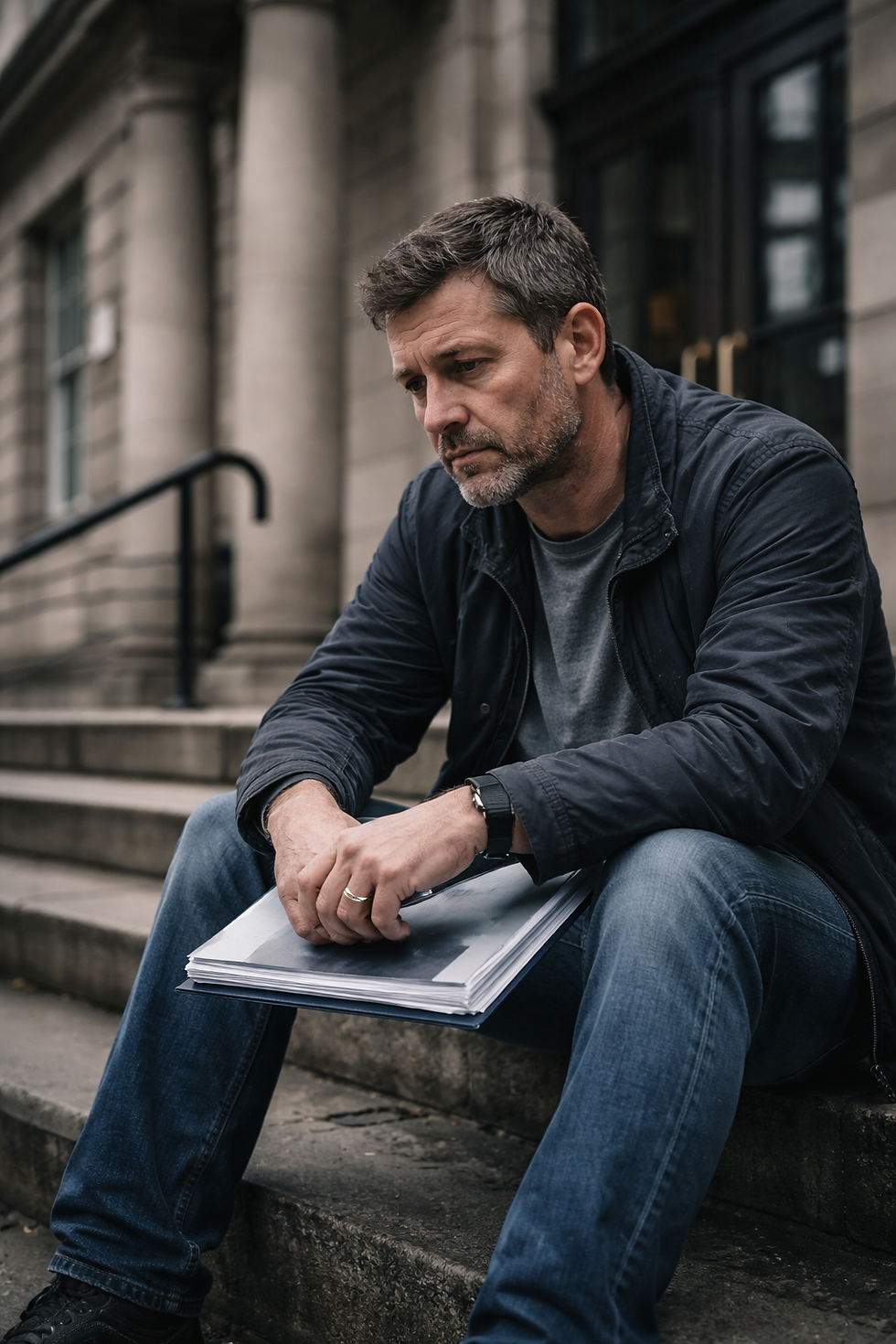The Question Every Juror Must Ask: Why Would She Lie?
- Falsely Accused Network

- Sep 26, 2025
- 3 min read
Imagine yourself on a jury in a domestic abuse trial. The courtroom falls silent as a woman breaks down in tears, telling the judge and jury she was abused by her partner. Across the room, the man firmly denies the allegations, standing by his innocence. The thought runs through your mind: why would she make this up? Why would she lie about something so serious?
It’s a fair question. But the reality is uncomfortable: while domestic abuse is very real and should never be dismissed, there are cases where women fabricate allegations. At the Falsely Accused Network, we know this harsh truth from the hundreds of men who call us every year.
---
Why Tears Aren’t Enough
Jurors are reminded in every trial: you must decide on evidence, not emotion. Tears can be genuine—but they can also be an act. Calm denials can be sincere—or rehearsed. The real question is: what does the evidence show?
Is her account consistent, or has it shifted over time?
Is there corroboration—texts, emails, medical notes, independent witnesses?
Does the timeline make sense?
A guilty verdict can never be based on sympathy alone.

---
Timing Tells a Story
Many false allegations arise at very specific points:
After infidelity is discovered – retaliation for being caught cheating.
Spousal visa scams – where claiming abuse opens the door to a permanent visa.
Jealousy over a new relationship – when an ex cannot accept that their former partner has moved on.
When he leaves the relationship – retaliation for ending things, punishing him by making allegations to regain power or control.
These don’t prove dishonesty, but they are powerful signs jurors must weigh carefully.
---
Reasonable Doubt Protects Us All
The legal standard is clear: guilt must be proven beyond reasonable doubt. If you are left thinking, I’m not sure, the law requires an acquittal. This isn’t a loophole—it is the foundation of justice. One wrongful conviction is one too many.
---
The Human Cost of False Allegations
False allegations devastate lives:
Fathers cut off from their children.
Careers and reputations ruined.
Mental health shattered, sometimes fatally.
They also harm genuine victims, making it harder for them to be believed. Both problems are real, and both must be faced.
---
A Juror’s Checklist for Truth
When weighing a domestic abuse case, ask yourself:
1. Timing – Did the allegation emerge only after a major conflict or trigger?
2. Consistency – Has the story stayed the same?
3. Corroboration – Is there any independent proof?
4. Motive – Could there be a gain from lying (money, revenge, custody, immigration, retaliation)?
5. Burden of Proof – Has the prosecution truly removed all reasonable doubt?
---
The Bottom Line
Justice is not blind belief, nor cynical dismissal. Justice is evidence, tested and weighed without prejudice.
So the next time someone asks, “Why would she lie?” remember: people lie for all sorts of reasons. It’s not your job as a juror to speculate—it’s your job to hold the evidence to the highest standard.
Because lives, families, and futures hang in the balance.
---
✍️ Written by Michael Thompson
Founder, Falsely Accused Network
📞 0204 538 8788
⚠️ Disclaimer: The Falsely Accused Network provides support, resources, and referrals. We are not a law firm and cannot provide legal advice. All cases are based in England and Wales.



Comments